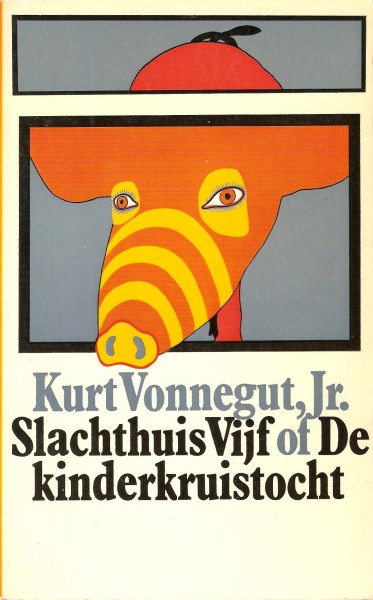I finished reading Slaughterhouse-Five (1969) by Kurt Vonnegut.

It was not until I had read Galápagos (1985) in 2012 that I realized what a genius Vonnegut is. Last winter in China I read While Mortals Sleep (2011), a collection of short stories of which “The Humbugs” is absolutely gorgeous.
Back to Slaughterhouse-Five.
On page 21 (I’m reading the beautiful Dutch translation of 1970 translated by Else Hoog and with a cover by Ton Klop[above]), is the remark of Vonnegut on the fact that nothing intelligent can be said about a massacre, in this case the bombing of Dresden in World War II.
These are his words: “There is nothing intelligent to say about a massacre. Everybody is supposed to be dead, to never say anything or want anything ever again. Everything is supposed to be very quiet after a massacre, and it always is, except for the birds. And what do the birds say? All there is to say about a massacre, things like “Poo-tee-weet?“”
“Poo-tee-weet”, translated with an exclamation mark in Dutch au lieu of a question mark in the original English, is an onomatopoeia of a bird vocalization and in Vonnegut’s novel it stands for something meaningless (as Aristotle used it when he called the Platonic forms teretismata).
In reality of course, bird vocalizations are not meaningless (they are not blituri to use another ancient word), it is a form of animal communication that humans fail to understand.
Which brings us to the trope of meaningless violence, the Dutch notion of excessive and unnecessary violence. Here too, Vonnegut has something to say. When one character announces he is writing an anti-war book, someone retorts that writing and anti-war book is useless, because war is inevitable, you might as well write an “anti-glacier book”. Observations like this make Vonnegut not only a philosophical writer but also one of the great moralists of the 20th century.
